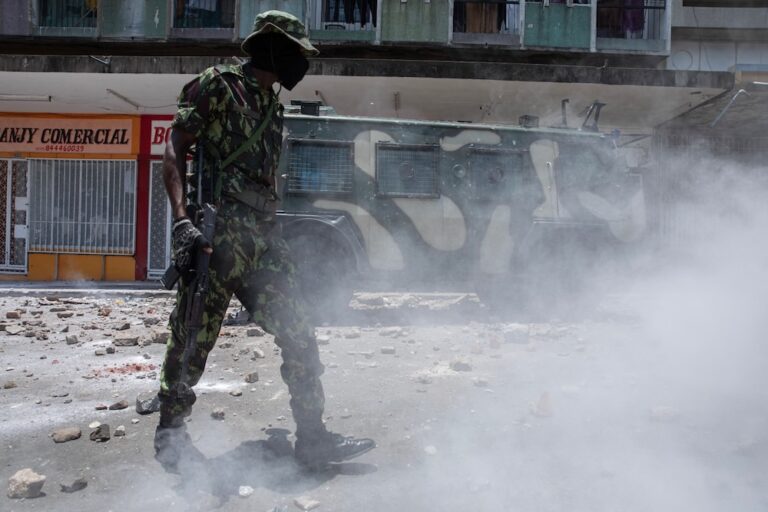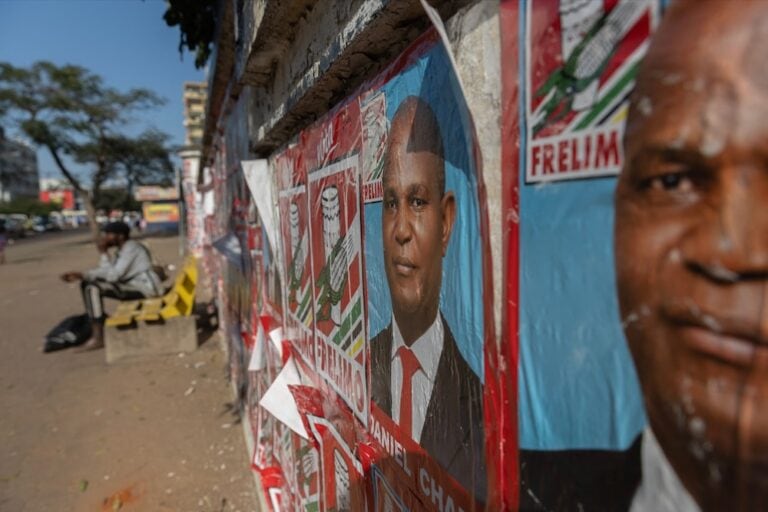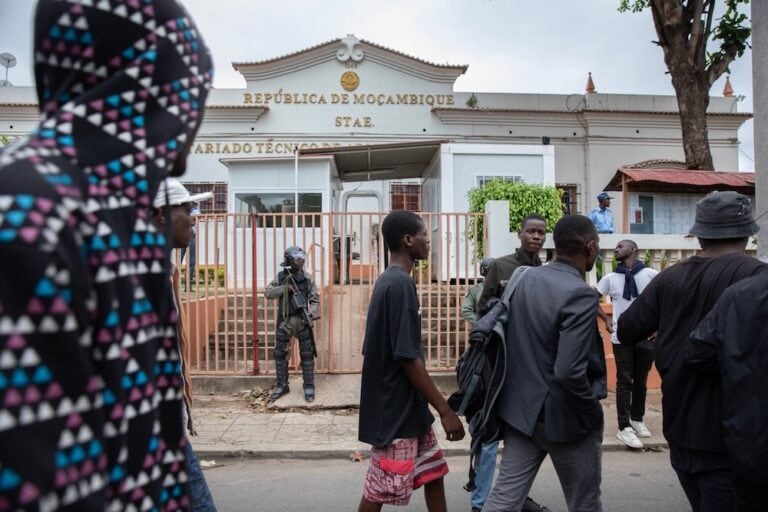(MISA/IFEX) – The Mozambican chapter of MISA welcomes the decision by the Supreme Court to reject the appeals made by the six men who were found guilty in January 2003 of the murder of the country’s top investigative reporter, Carlos Cardoso. Three of the six – Vicente Ramaya, and the brothers Momade Assife Abdul Satar […]
(MISA/IFEX) – The Mozambican chapter of MISA welcomes the decision by the Supreme Court to reject the appeals made by the six men who were found guilty in January 2003 of the murder of the country’s top investigative reporter, Carlos Cardoso.
Three of the six – Vicente Ramaya, and the brothers Momade Assife Abdul Satar (“Nini”) and Ayob Abdul Satar – are business figures. Ramaya was manager of a branch of the Commercial Bank of Mozambique (BCM), where a massive bank fraud occurred in 1996, of which the main beneficiaries were members of the Abdul Satar family.
The other three were members of the death squad hired to carry out the murder: Anibal dos Santos Junior (“Anibalzinho”), who organised the assassination and drove the car, Carlitos Rashid, who fired the fatal shots, and Manuel Fernandes, who was the lookout.
The Supreme Court agreed with the original trial judge, Augusto Paulino, that the main motive for the assassination was Cardoso’s persistent investigation of the BCM fraud.
A MISA-Mozambique statement declares that the confirmation of the original verdict and sentence “is an important landmark in the administration of justice in Mozambique, and strengthens the legitimate expectations of Mozambican society as to the determination of the national legal system in the fight against organised crime in general”.
The motive for the crime, MISA adds, “was the hatred of its authors for the selfless work of Cardoso, expressed in the exercise of press freedom as a powerful vehicle for the denunciation of organised crime and of corruption”.
MISA-Mozambique was particularly pleased that the Supreme Court has dismissed claims by the accused that the live broadcast of the murder trial was unconstitutional.
Under pressure from society, and from the media itself, judge Paulino agreed that the entire proceedings could be broadcast live – much to the fury of more conservative figures within the judiciary, as well as of the accused and their lawyers.
The Supreme Court ruling, however, came down firmly on the side of the public nature of Mozambican justice. It said “journalistic coverage of trials concerning crimes of a public nature and the live broadcast of trial sessions are not forbidden by law and, in cases of evident public interest, are justified by the right of citizens to information”.
Far from damaging the rights of the accused, the maximum publicity for trials could help them. The Supreme Court pointed out that the public nature of trials “gives the accused guarantees that the trial will occur within the strict observance of legality”.
MISA-Mozambique said that in this part of its ruling the Supreme Court “has made a fundamental contribution to national jurisprudence”, and called on all other judges to follow the precedent that has now been set.
Press freedom and the right of citizens to information are “fundamental ingredients of the democratic rule of law”, the MISA-Mozambique statement declared.


